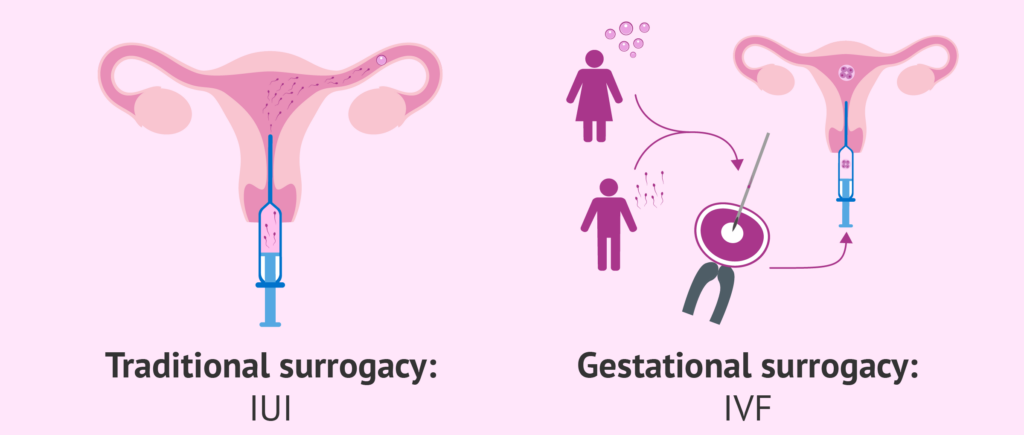Surrogacy has emerged as a viable option for individuals and couples longing to have children. However, the involvement of a surrogate mother raises important questions about parental rights. As the desire for genetic connections with their children persists, intended parents often wonder about the legal and ethical considerations surrounding surrogacy. Understanding the intricacies of parental rights is crucial for all parties involved—the intended parents, the surrogate mother, and most importantly, the child.
More and more people who desire to have their own children can use surrogacy. Almost any kind of family in Ukraine can find a surrogate through a surrogacy agency (international-surrogacy.com). Before starting a family, you should be informed of your parental rights and those of your intended parent and the surrogate mother.
However, the involvement of a surrogate mother raises important questions about parental rights. As the desire for genetic connections with their children persists, intended parents often wonder about the legal and ethical considerations surrounding surrogacy. Understanding the intricacies of parental rights is crucial for all parties involved—the intended parents, the surrogate mother, and most importantly, the child.
Exploring the complex dynamics of surrogacy is vital to ensure that the rights and interests of all parties are protected. By delving into the legal frameworks and ethical guidelines governing surrogacy, prospective parents can make informed decisions and navigate the surrogacy journey with confidence. Furthermore, recognizing the rights of surrogate mothers is paramount in promoting a fair and compassionate approach to this modern method of family-building.
What is a Gestational Mother?

Source: joyoflifesurrogacy.com
A woman whose uterus is utilized to nourish and grow an embryo into a baby is referred to as a gestational mother or a surrogate mother. This individual isn’t regarded as the child’s legal mother in Ukraine. The intended mother is the child’s mother, whether she is the child’s genetic mother or if donor eggs were used instead.
Traditional and gestational surrogacy are two different forms of surrogacy partnerships.
Legal and Ethical Considerations
Surrogacy, as a complex process involving multiple parties, raises various legal and ethical considerations that must be carefully examined. Understanding these considerations is crucial for individuals and couples contemplating surrogacy as a means of building their families.
Legal Frameworks
Surrogacy laws differ from country to country, and even within different states or regions. It is essential for intended parents and surrogate mothers to be aware of the legal landscape surrounding surrogacy in their respective jurisdictions. Understanding the legal framework helps in navigating the process, ensuring compliance with the law, and protecting the rights of all parties involved.
Parental Rights

Source: epplaw.com
One of the primary legal considerations in surrogacy is establishing the parental rights of the intended parents. Surrogacy agreements and legal procedures are typically utilized to transfer these rights from the surrogate mother to the intended parents. It is crucial for intended parents to understand the steps and requirements involved in establishing their legal parentage to safeguard their rights and responsibilities.
Consent and Autonomy
Ethical considerations play a significant role in surrogacy, particularly regarding the consent and autonomy of the surrogate mother. It is essential to ensure that the surrogate mother fully understands the implications of her decision to carry a child for someone else. Protecting her autonomy and ensuring that she provides informed consent are essential ethical considerations in surrogacy arrangements.
Financial Considerations
Surrogacy often involves financial compensation for the surrogate mother. Determining fair and ethical compensation that supports the well-being of the surrogate while avoiding exploitative practices is a critical aspect of surrogacy arrangements. Legal frameworks in some jurisdictions may have specific guidelines or restrictions on the financial aspects of surrogacy.
Emotional and Psychological Well-being
The emotional and psychological well-being of all parties involved in surrogacy must be considered. Surrogacy can have profound emotional implications for intended parents, surrogate mothers, and even the child born through the process. Ensuring proper counseling and support services are in place throughout the surrogacy journey is vital to address the potential psychological impact.
By carefully examining these legal and ethical considerations, individuals and couples can make informed decisions about surrogacy. It is important to consult legal professionals and ethical experts specializing in surrogacy to ensure compliance with the law, protect the rights of all parties, and promote a compassionate and ethical approach to this method of family-building.
What’s the Difference Between Gestational Surrogacy and Traditional Surrogacy?

Source: invitra.com
In traditional surrogacy, sperm from the intended father or a donor fertilizes an egg of a surrogate mother. This indicates that the child and the surrogate mother share genetics. In gestational surrogacy, the intending parents create an embryo from an egg and sperm and implant it into the surrogate mother. In this instance, the surrogate mother is not genetically connected to the child.
The gestational surrogate mother has no genetic ties with the kid, which is how she differs from a traditional surrogate. As a result, a surrogate would not be the child’s biological parent.
It’s worth noting that traditional surrogacy is legally forbidden in many popular surrogacy destinations, including Ukraine.
Can a Surrogate Mother Keep the Child?
The rights of a child’s surrogate mother and prospective parents are safeguarded by local surrogacy legislation. However, gaps in the law might leave openings for weaknesses.
This is why surrogacy agreements should be regularly reviewed and written with the intended parents and surrogate’s interests in mind. The country issues a birth certificate to officially recognize the intended parents as the child’s parents after the baby is born.
Balancing the Rights of All Parties
Surrogacy presents a unique challenge of balancing the rights and interests of all parties involved—the intended parents, surrogate mothers, and most importantly, the child. Achieving a fair and equitable balance requires careful consideration of various factors and the implementation of legal and ethical safeguards.
Best Interests of the Child
The paramount consideration in any surrogacy arrangement should be the best interests of the child. Ensuring that the child’s well-being, safety, and long-term happiness are prioritized is essential. Legal frameworks and ethical guidelines should place the child’s needs at the forefront, encompassing their physical, emotional, and psychological well-being.
Rights of Intended Parents

Source: eachother.org.uk
Intended parents have the legitimate desire to have a child and form a family. Their rights should be respected and protected throughout the surrogacy process. This includes establishing legal parentage, ensuring access to medical information, and the ability to make decisions regarding the child’s upbringing. Clear legal frameworks and proper documentation can help safeguard these rights.
Rights of Surrogate Mothers
Surrogate mothers play a vital role in the surrogacy process and should have their rights upheld and protected. This includes the right to autonomy, bodily integrity, and fair compensation. Surrogate mothers should have access to comprehensive information, counseling, and support services to make informed decisions and navigate the emotional and physical aspects of surrogacy.
Emotional Support and Counseling
Balancing the rights of all parties also involves providing emotional support and counseling throughout the surrogacy journey. Intended parents, surrogate mothers, and even the child may require professional assistance to navigate the emotional complexities that arise during and after the process. Access to mental health resources can help promote the well-being of everyone involved.
Mediation and Dispute Resolution
Despite efforts to establish a fair and balanced surrogacy agreement, conflicts or disputes may arise. Implementing effective mediation and dispute resolution mechanisms can help resolve disagreements in a manner that upholds the rights and best interests of all parties involved. This ensures that potential disputes do not negatively impact the child’s welfare or the relationships between the intended parents and surrogate mother.





















